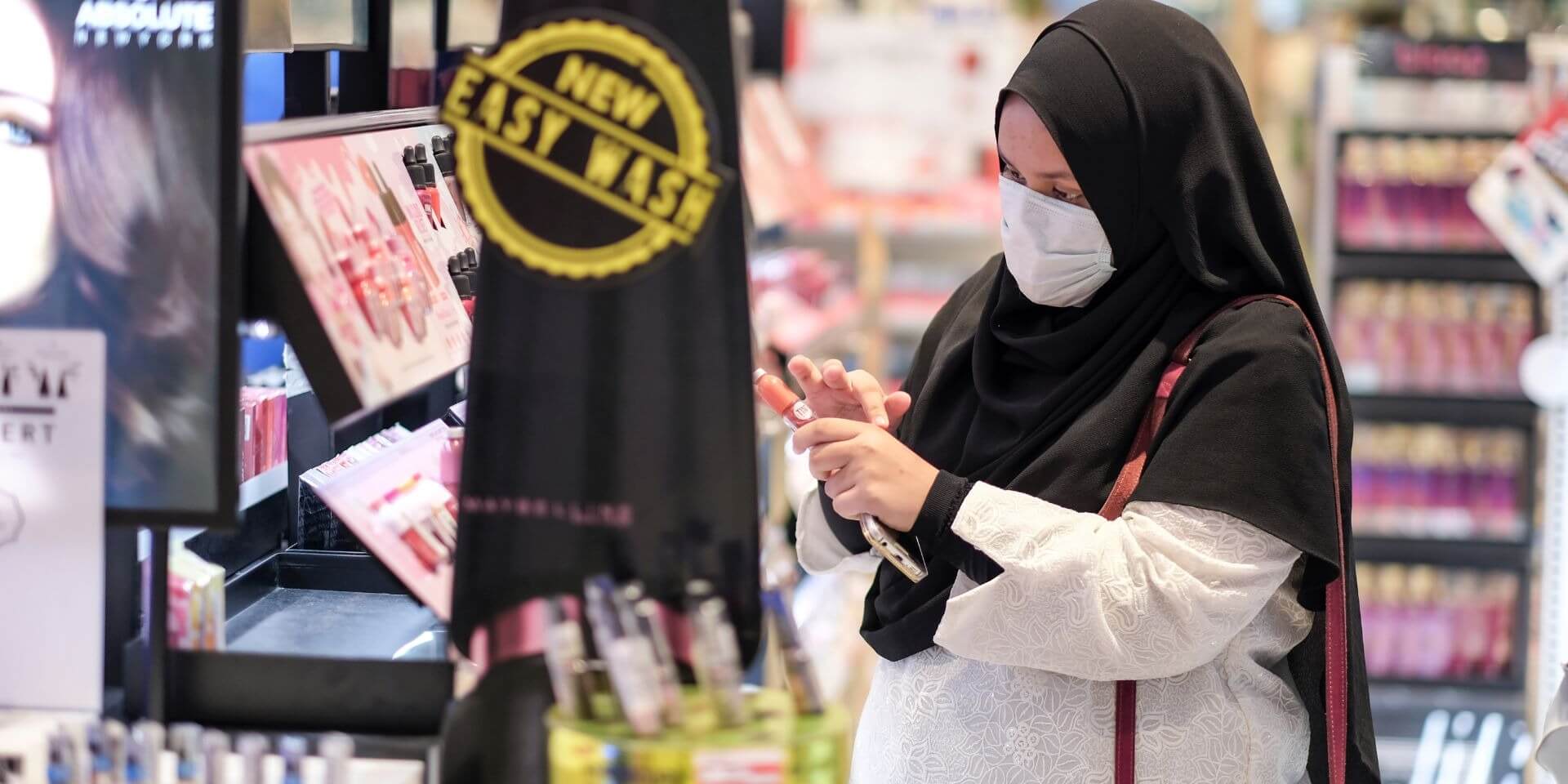SGIE Report 2023/24: Halal cosmetics surge in global beauty market
Halal cosmetics emerges as a dynamic sector within the global beauty market, driven by the growing demand for halal cosmetics.
As per the State of the Global Islamic Economy Report 2023/24, the halal cosmetics industry is experiencing significant growth. Muslim consumer spending on cosmetics reached $84 billion in 2022, a 14.3% increase from $74 billion in 2021.
India and Indonesia remain the top two largest markets for Muslim consumer spending on cosmetics, while Türkiye has moved up to third position.
The market is forecasted to grow at a CAGR of 8.9% from 2022 to 2027, reaching $129 billion by 2027.
With the increasing demand for halal beauty products, several halal beauty startups have secured funding from VCs to tap into maximum opportunities.
Investment and trade drivers reveal substantial deals, with Social Bella in Indonesia leading the way and France topping exports to the OIC. The top five halal cosmetics consumer markets, led by India, Indonesia, Türkiye, Russia, and Egypt, demonstrate the global reach of the industry.
The report also highlights the emergence of the Skintellectual generation, driven by social media, particularly TikTok. This generation has rising knowledge and awareness of clean and authentic beauty and is open and eager to learn new concepts, including halal beauty. Some ingredients, such as retinol and niacinamide, gained popularity on social media due to their important functions for healthy skin.
In response to the demand for sustainable beauty products, brands are leveraging community engagement and co-creation for product development. Technological advancements, such as augmented reality (AR) and artificial intelligence (AI), reshape customer interactions, offering immersive and personalized experiences.
Funding and M&A activities, particularly in the Middle East and Southeast Asia, underscore the industry's growth, with direct-to-consumer brands leading the way. Regulatory oversight increases, as seen in Singapore's mandatory packaging reporting and Pakistan's plans for a cosmetics authority.
National and trade developments reflect efforts to build sustainable global trade, with Korea actively expanding its network to capture a larger share of the Muslim cosmetics market. Initiatives in Morocco, Indonesia, and Malaysia aim to adopt more sustainable practices in response to EU regulations.
Overall, the halal cosmetics industry is a rapidly growing market with significant potential for growth and investment. With the increasing demand for halal and clean beauty products, there are ample opportunities for startups and established companies to tap into this market and cater to the needs of Muslim and ethical consumers.
The State of the Global Islamic Economy Report 2023/24, produced by DinarStandard, can be downloaded here.
